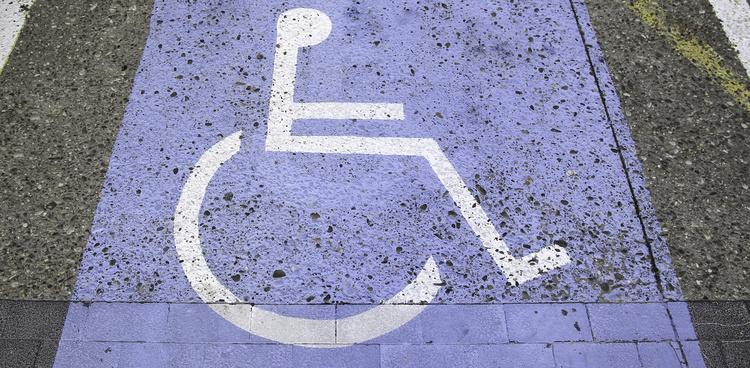
Answering the Question: Should There Be An Increase In The Number of Accessible Disabled Parking Spaces?
Accessible parking spaces are vital for drivers with disabilities. When living with a disability or mobility issue, you may wonder whether the places or locations you frequently visit have enough disabled parking spaces. Some parking spaces might have the right amount of accessible parking lots available when you want to park at these places, whereas some have inadequate spaces, making them fill out quickly. With this uncertainty, many individuals have been asking if the authorities should increase the number of available designated parking lots.
The Americans with Disabilities Act (ADA) sets numerous regulations to ensure that citizens with different disabilities have convenient and easy access to accessible parking spaces. The law requires that these spaces connect you to the shortest designated route to the facility or building entrance. Furthermore, suppose the parking space serves multiple entrances or buildings. In that case, the authorities or owners must disperse the spaces around these parking lots to provide disabled individuals with various parking options. For instance, a shopping center or market with numerous stores must have separate lots throughout the parking space. The numerous options allow handicapped individuals to park closer to the place or location they want to visit.
The law requires all accessible parking lots to be eight feet wide and the van-accessible spaces to be at least 11 feet wide. More so, both spaces must have access to aisles measuring approximately five feet wide. The Aisle’s design helps to provide enough space or room for individuals using vehicle-mounted wheelchair lifts or allows easy loading and unloading of mobility devices, like walkers, wheelchairs, etc. Authorities mark aisles with hatch marks, which prevent other vehicles or cars from parking closer to your car. The ADA Act also outlines that these aisles and spaces be smooth and level, allowing individuals with limited mobility or disabilities to walk conveniently, load, and unload mobility devices without any limitations or obstacles.
The ADA Act provides various regulations that guide retail locations and business owners on the number of accessible parking lots they require for their premises. Below is a breakdown of the required number:
So, is this number enough for passengers or drivers with disabilities. Below are the key considerations:
There Should be More Accessible Parking Spaces in Places with More Disabled Individuals
Statistics show that there are higher chances or likelihood of more disabled individuals in parking spaces in medical clinics, hospitals, and physicians' offices. While the law requires outpatient facilities in hospitals to have 10% handicapped parking lots in their parking space, this number might not be enough to allow everyone to park close to the facility's entrance. More so, the law requires rehabilitation facilities with outpatient physical therapy offices or treating mobility-related issues to have 20% of their entire parking space to be accessible parking spaces.
Despite the efforts to ensure disabled individuals have easy access to different facilities, the spaces may not be enough for all patients with mobility issues or disabilities that require an accessible lot. For instance, according to the regulations, if a physical therapy center provides 50 parking spaces in their lot, they’ll only designate two for individuals with disabilities. Therefore, locations expecting or projecting a higher number of disabled individuals should have plans to increase the number of accessible parking spaces in their lot.
Addition of More Medical Conditions or Disabilities as Qualifying Conditions
With the authorities granting more individuals with hidden conditions or disabilities the disability status, there is a need to increase the handicap parking spaces. These conditions include developmental delay, autism, memory issues, and emotional impairment. Thus, if the authorities consider these mental and physical issues as disabilities, then it qualifies many individuals for handicap parking permits and placards, increasing the need for more accessible parking spaces. With the broadening nature of the definition of disability, individuals will exhaust the designated spaces, making the retail locations & public places offer additional and viable options for the clients and customers.
Some Enterprises Considers Adding More Accessible Places
Suppose business owners find that most disabled parking lots are always full, and other disabled customers lack the spaces, they might think or consider having additional accessible parking spaces in their parking lots. Thus, if you’re a disabled driver and spend more time at a certain location struggling to get designated parking spaces, consider raising your concern to the head or manager of the place or company. The management might not have realized the existence of the accessibility issue, and your concern or complaint might prompt them to solve or improve the situation. Alternatively, you can alert your state’s law enforcers or DMV if you feel that other non-disabled drivers are using the accessible parking spaces illegally.
There is Possibility of All Individuals Having or Requiring a Handicap Parking Permit
Equity for all individuals with disabilities in a particular space is vital. Even if the individual lacks a visible disability, they may contract or have a qualifying condition (illnesses or injury) in the future. Despite not requiring the permit or placard, everyone might have to utilize the accessible parking spaces at some point. Thus, different places or locations prepare to have enough handicap parking spaces suppose everyone needs them.
Ultimately, locations and places should have enough handicap parking spaces to make parking convenient for disabled individuals. However, fewer spaces limit accessibility, preventing you from having the best and most comfortable life. Fewer handicap parking places may limit your traveling and the spaces you visit or make your outings stressful, inconvenient, and taxing. Increasing the number of accessible parking lots enhances great independence for disabled individuals and makes the situation more equitable and fairer for everyone.
.png)






